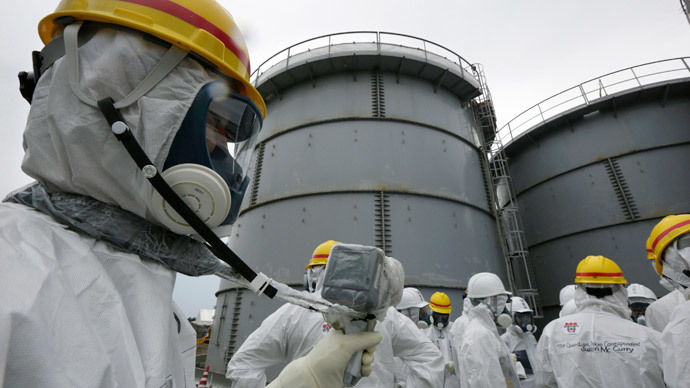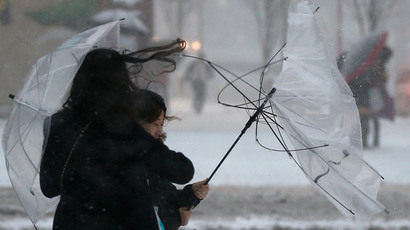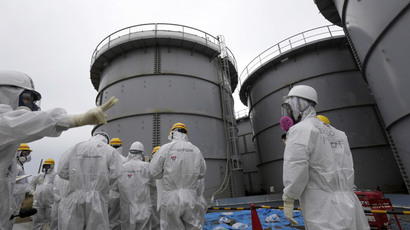100 tons of toxic water leaked at Fukushima plant

Around 100 tons of highly radioactive water leaked from one of the tanks at Fukushima Daiichi nuclear plant, the plant's operator, Tokyo Electric Power Co. (TEPCO) said on Thursday.
The water reportedly spilled beyond the barrier that is set up to block it from flowing out of tank. TEPCO believes the leakage has not reached the adjacent sea, as there is no drainage nearby that flows out to the sea.
A process to stop the radioactive leak is underway. The spill is said to contain 230 million becquerels per liter of strontium and other beta ray-emitting radioactive substances.
The leak was discovered by workers on patrol at around 11:25 p.m. local time on Wednesday.
It is the latest in a series of leaks that TEPCO has struggled to
control at the stricken nuclear power plant. According to
previous statements from the company, as many as 20 trillion
becquerels of cesium-137, 10 trillion becquerels of strontium-90
and 40 trillion becquerels of tritium have found their way into
the sea by way of groundwater leaks between May 2011 and August
2013.
TEPCO has been at the center of a storm of criticism over its
management of Fukushima in the wake of the 2011
earthquake-triggered tsunami that decimated the plant. Last week
it was revealed that TEPCO had held back reports of dangerously
high radiation levels at the plant since September.
Last Thursday the company announced it detected 5 million
becquerels per liter of radioactive strontium-90 in a groundwater
sample taken some 25 meters from the ocean as early as last
September, Reuters reports. The legal limit for releasing
strontium into the ocean is just 30 becquerels per liter.
The company refrained from reporting on the leak despite numerous
requests from the Nuclear Regulation Authority (NRA). A
spokesperson for TEPCO said the decision not to release the data
was made because of “uncertainty about the reliability and
accuracy of the September strontium reading.”














